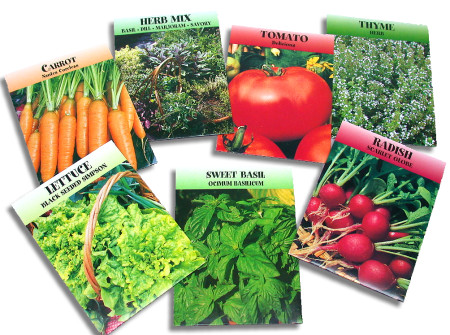
Frugal gardeners save unused seeds from previous years, thinking they’ll save money.
Like everything else, the price of seeds increases almost every year. But you don’t save money if the seeds you saved and planted did not germinate or grow as expected.
Seeds saved in a closed container in the lower portion of the refrigerator remain viable longer than seeds saved in a box or drawer. Still, seeds lose their viability the longer they are kept in storage. Seed producers have specialized refrigeration units with humidity controls for storage.
Don’t overbuy in the belief that you will save money by purchasing seeds in larger quantities. Physiological changes occur during storage. Unless seeds are stored under optimum conditions, their germination rate will be considerably reduced each year. Many of the seeds that do germinate will produce undersize plants.
Order no more seeds than you can use within two years.
To save money buying seeds, get together with other gardeners and decide on the varieties you want to grow. Purchasing seeds by packets is expensive as compared to purchasing seeds by the ounce or pound.
Most seed catalogs offer free shipping with purchases at certain levels. The cost of shipping seeds depends on the total amount excluding sales tax and handling.
Purchasing all of your seeds from one company can save you money, so it pays to make a wish list of all the varieties of vegetables and flower seeds you want to purchase. Then compare your wish list with your seed catalogs. Not all catalogs will offer the exact varieties you desire. If you are hard-nose as to the varieties you desire, you are likely to spend more on shipping than if you are flexible and willing to accept substitutes.
As a frugal gardener, I compare my wish list with five to eight catalogs and purchase seeds from the one that can provide 75 percent of the varieties on my list.
Many catalogs also offer a discount for orders placed before March 1.
As soon as your seeds arrive, store them in the bottom of the refrigerator until planting time. The worst thing you can do is to leave them in their original box on the kitchen counter or where the box can be exposed to direct rays of the sun.
As you look through your collection of old seeds, discard all that are five years and older. Onion, carrot and parsnip seeds have a short shelf life even when stored under refrigeration. Discard any that are three years and older.




























